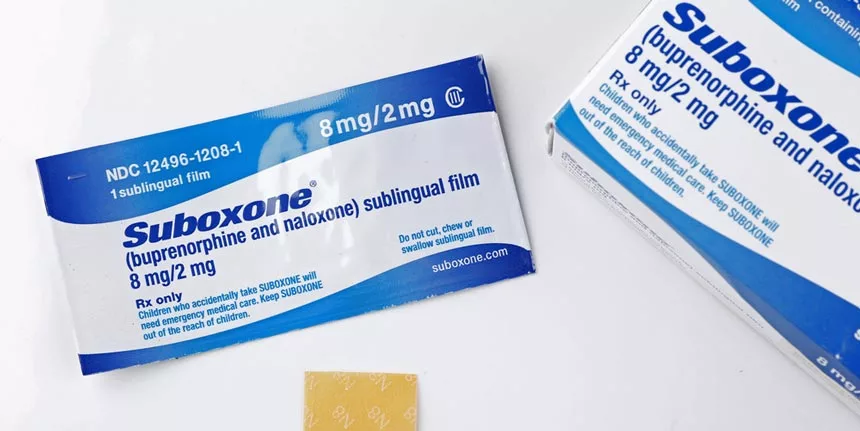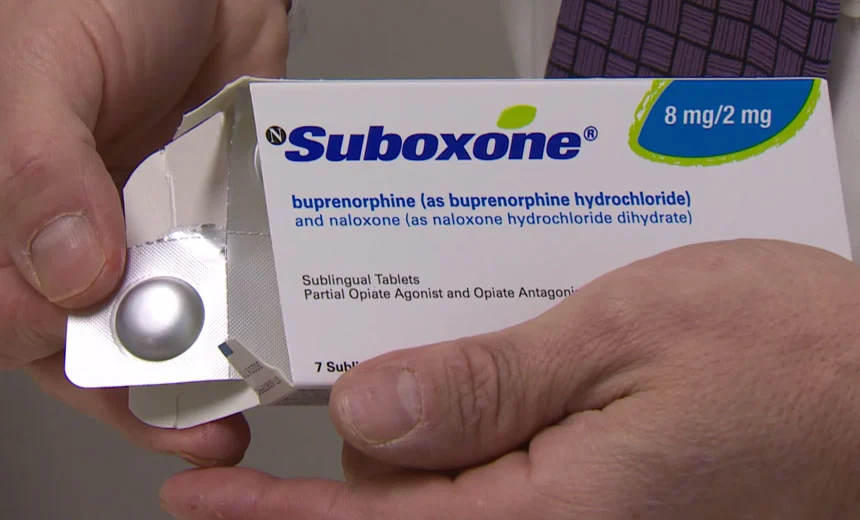Does Suboxone Linger in Your Body?
Table of Contents
- Does Suboxone Linger in Your Body?
- What is Suboxone?
- What is Medication-Assisted Treatment?
- How Long Does Suboxone Stay in Your System?
- How Long Does Suboxone Stay Detectable on Drug Tests
- Factors Influencing How Long Suboxone Stays in Your System
- Treatment Options for Suboxone Addiction
- What Is a Medical Detox Program?
- Life After Addiction is Waiting for You
You may want to know answers to how long does Suboxone stay in your system for a variety of reasons. If you have taken Suboxone recently and wish to know if it will show up on a drug test, we’ve got answers.
If you are using Suboxone, but also want to use other opiates, being aware of the myths and realities of how long it stays in your system is crucial.
Keep reading to find out all the answers to your questions on Subs, and how to find effective treatment if this opioid drug has become an issue in your life!
What is Suboxone?
Suboxone is a semisynthetic opioid made up of the drugs buprenorphine and naloxone and is commonly used to treat addictions to other opioids, such as heroin and oxycodone.
This prescription medication may be used as an alternative to methadone, which has long been used to treat heroin addiction.

Although both Suboxone and methadone are still opioids, interacting with the same opioid receptors in the brain, they do not produce the same kind of high that is experienced when abusing illicit drugs or commonly abused prescription opioids.
This means that they can help reduce and prevent withdrawal symptoms and opioid cravings during recovery, without necessarily posing a risk for abuse themselves. However, that does not change the fact that Suboxone is still an opioid.
This means that, if taken in large doses, it can still produce a high and become addictive over time. While this effect may not be as apparent for someone who is already addicted to opioids, it may be abused out of desperation or can be addictive for someone who has not yet abused other opioids.
Suboxone addiction can be a surprising reality for those who think of the drug as a harmless way of getting off other ‘harder’ opiates or opioids.
What is Medication-Assisted Treatment?
Medication-assisted treatment (MAT) is a type of addiction treatment that uses FDA-approved medications to help manage substance withdrawal symptoms and cravings during the recovery process.
These medications are often used alongside behavioral therapies, counseling, or other forms of intensive psychiatric treatment. With this whole-health approach to treatment, individuals are given an increased chance to maintain their sobriety and avoid relapse.
MAT, while effective for treating many different forms of addiction, is most commonly used for those struggling with an alcohol or opioid use disorder. Of course, it is important to stress that MAT works best when used alongside other treatment methods.
There are many benefits to using managed medication to treat opioid addiction and other forms of substance abuse. These include:
- Normalizing brain chemistry can help to reduce withdrawal symptoms and drug cravings
- Blocking the euphoric effects caused by other drugs, reducing the desire to abuse these substances
- Normalizing bodily functions as your system adjusts to no longer having access to an abused substance
- Preventing overdoses
- Preventing relapses
- Providing a sustainable and balanced recovery
How Long Does Suboxone Stay in Your System?

It can take quite a bit of time for Suboxone to completely leave your body, as it has an extremely long half-life. This means that Suboxone abuse can be detected even days after your last time using this drug.
Combining Suboxone with other medications or drugs or taking it in higher doses may make this process significantly prolonged, especially if mixing it with another long-acting opioid.
What is the Suboxone Half-Life?
The buprenorphine in Suboxone, even when compared to other opioids, has a much longer half-life than most other drugs. Elimination half-life refers to the amount of time it takes for half of a dose of a drug to leave your system.
While how long it takes for a drug to leave your system depends on several individual factors, for buprenorphine, this lasts for around 37 hours. This means that it can take seven to nine days for Suboxone to no longer be detected in your body.
How Long Does Suboxone Stay Detectable on Drug Tests
When metabolizing Suboxone, the liver creates buprenorphine metabolites, which often remain in the body longer than the drug itself. If you have good liver health, this may take less time, while someone with poor liver function can take up to two weeks to clear out the drug.
Most standard drug tests can detect these metabolites, meaning that even after you metabolize Suboxone, you may still test positive for buprenorphine. Blood tests, while more invasive, can only detect suboxone use for a short window of time after ingestion.
This is why, in most cases, saliva tests are usually preferred over a blood test, as these are easier to administer, and can detect suboxone even up to a week after the person’s last dose.

Urine tests are also commonly used, particularly by employers when hiring. Buprenorphine becomes detectable by a BUP drug test within just 40 minutes of use. For long-term Suboxone users, this drug can show up in a urine drug test even up to 2 weeks later.
Suboxone and its metabolites can also build up in hair follicles, meaning they will be able to be detected in hair tests for up to 1-3 months after use. However, this is considered to be a somewhat unreliable form of drug testing and is not used as often.
Factors Influencing How Long Suboxone Stays in Your System
How long Suboxone stays in the system can change from person to person. Several individual factors can contribute to how long it will take for Suboxone to completely leave your system. These include:
- Your body fat content.
- Your height and weight.
- Your age.
- Your metabolism speed.
- The amount of Suboxone you took.
- How long you have been abusing Suboxone.
- Your liver health.
Treatment Options for Suboxone Addiction
While less common than other forms of addiction, Suboxone abuse can still be a serious issue for many people. Fortunately, there are many types of treatment options and rehab programs available to help struggling individuals overcome these habits.
For some people, it will be recommended that they seek out medical advice and assistance in tapering off of their Suboxone use. This can best be done through a medical detox program, where users can stop taking it gradually, rather than suddenly quit altogether.
Find Addiction Rehabs can help with placement at top facilities nationwide that offer accredited Suboxone rehab programs, with an emphasis on passing through withdrawal comfortably.
What Is a Medical Detox Program?
As a particularly popular, and often necessary, part of substance abuse treatment, the medical detox process not only forms the foundation for an individual’s recovery from addiction but for their ability to successfully maintain their sobriety, as well.
Medical detox programs provide a safe and controlled recovery environment, staffed with doctors and other licensed clinical professionals to help ensure that those in recovery are able to withdraw from Suboxone (or any other abused substance) as smoothly as possible.
What is Detox?
Detoxification, also known as detox, refers to the process of removing toxins and harmful substances from one’s body. During this, the liver will remove impurities from the blood; this process can also take place in the skin, kidneys, lungs, intestines, and lymphatic system.
While this can be done medically or by oneself, in the case of substance abuse, it is always highly recommended that you seek out professional detox treatment services, as this can be a dangerous and difficult process to attempt on your own.
Life After Addiction is Waiting for You
If you or a loved one is struggling with Suboxone abuse or any other type of addiction, this can be an incredibly difficult thing to deal with on your own. Fortunately, recovery is possible, and help IS available.
At Find Addiction Rehabs, we are dedicated to helping people like you find treatment programs and services that are dedicated to serving all of your care needs. With our hotline available 24/7, we can provide you with recovery support and resources, anytime you need them.
So call now, and let us help you take the first step on your path to recovery from addiction!
Nicole R. is an experienced and accomplished writer with special interests in the fields of Anthropology, English, and behavioral health, and has written countless articles for newspaper publications, institutional research journals, and Find Addiction Rehabs.
Her alma matter is Florida Atlantic University in Boca Raton. Nicole hopes to spread awareness of and combat the stigmatization surrounding addiction and substance abuse treatment through her writing and work in the field.


